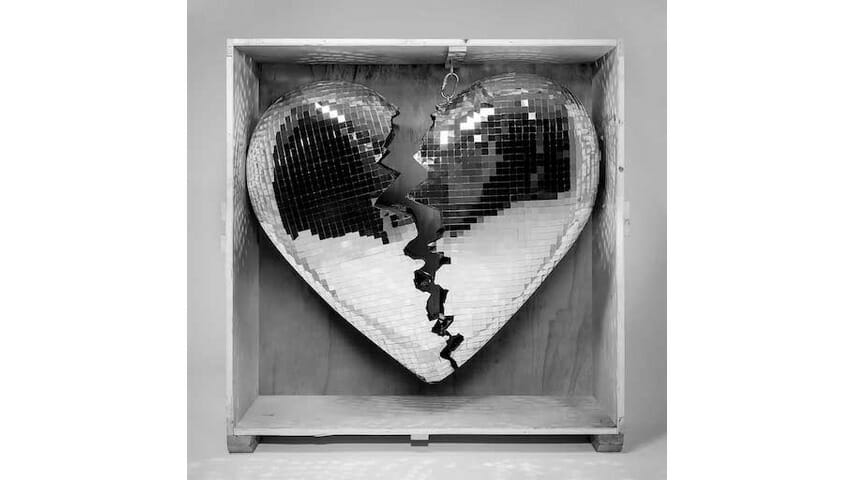Mark Ronson: Late Night Feelings

Mark Ronson has gotten really good at sounding ubiquitous. In 2018, the British songwriter, producer, and DJ co-wrote “Shallow,” the power ballad that glues Lady Gaga and Bradley Cooper together at the mic in the latest Star Is Born remake. Before that, Ronson wrote and produced “Uptown Funk” featuring Bruno Mars, a song that spent a good chunk of 2015 atop the Billboard Hot 100 and appears to have acquired an obligatory slot on wedding band set-lists since its release. Between smash singles, Ronson casually drops tracks with the likes of Adele, A$AP Rocky and Paul McCartney at an impressive clip. Those who’ve either sung along or rolled their eyes to Ronson’s hit singles, however, may have missed the four solo albums he’s more quietly released along the way. The fifth and newest, Late Night Feelings, is his sharpest, sturdiest effort yet, made so by its cohesive, downer-dance sound and its hip slate of all-female featured vocalists.
Ronson insists that the women-only lineup happened coincidentally, telling NME that “they were the people I was working with and coming into contact with” throughout the creative process. The resulting tracklist showcases a medley of mega-stars (Camila Cabello, Miley Cyrus and Alicia Keys), indie darlings (Lykke Li, Angel Olsen and King Princess) and relatively unknown vocalists who, like Ronson himself, have co-written or appeared on songs fronted by higher-visibility musicians. Most prominently featured among the latter group would be YEBBA, an artist originally from Arkansas, who melds a brassy soul timbre with an earnestness derived from singing Christian praise music in her youth. YEBBA has made a small splash singing backup for Chance the Rapper, winning a Grammy with PJ Morton for a cover of “How Deep Is Your Love” and releasing her own single “Evergreen”. On Late Night Feelings, Ronson trains a bigger spotlight on her, as she brings dynamism and range to three songs that move through a familiar post-breakup arc of delusional hope, shameless pleading and the puffed-up confidence we fake in order to move on. YEBBA’s three songs allow her to riff over Ronson’s penchant for funk-derived guitar grooves (“Knock Knock Knock”) and to belt out a dance track (“Don’t Leave Me Lonely”) that feels like a cross-breed of Sia’s dembow rhythm appropriations and Robyn’s sad-on-the-dancefloor soliloquies.
As these tracks suggest, Late Night Feelings is a breakup album through and through, summoning the cathartic space of the dance floor to explore the downtrodden internal monologues that can darken club-goers’ minds as disco balls spin and bass drops rattle the floor. Writing songs out of that friction—between chasing joy and courting self-destruction, peppy beats and depressing lyrics—isn’t a new innovation; it underpins early disco, while Drake, Sia and Robyn have made recent careers of it. In this sense, Late Night Feelings works as a sleek, pleasurable entry in an established canon rather than a true innovation of the form.
-

-

-

-

-

-

-

-

-

-

-

-

-

-

-

-

-

-

-

-

-

-

-

-

-

-

-

-

-

-

-

-

-

-

-

-

-

-

-

-








































